#complete restoration
Text
"we bought this Victorian house and opened up the interior, adding lots of overhead lights and pewter walls-"
biting you killing you biting you killing you biting you killing you
#JUST BUY A NEW HOUSE#THAT IS NOT MAKING IT LIVABLE WHICH I WOULD UNDERSTAND. THAT IS RUINING IT.#IF NOT WANT OLD HOUSE. DO NOT BUY OLD HOUSE#and don't come at me with 'well some people can't afford restoration so!'#if you can't afford restoration you can't afford to completely redo the interior. IKEAfication costs money too#it's not the poor doing this. it's rich assholes. sometimes just developers even who don't intend to live there
5K notes
·
View notes
Text
btw, the violinist in tmp 4? he's probably james smithson, of "founder of the smithsonian institute" fame
so what do we know about our violinist? he grew up in alnwick abbey, he was illegitimate and had legitimate full siblings, a father "certain of his celestial significance", and he has a nephew to whom he leaves his violin
and smithson? well, his father restored alnwick abbey in the 1750s, which was in ruins up until then. smithson was the only illegitimate child of any of the dukes there in the 1700s, which is when the statement is set
smithson also left his estate to his nephew after his death, with the condition that his fortune would establish the smithsonian institute if his nephew died without any children.
here's a point of divergence, however. in our timeline, smithson was a chemist and mineralogist. in tmagp's timeline, he was a violinist. however, as u/New_Helicopter836 pointed out to me on reddit, when smithson's body was disinterred by andrew graham bell, his right little finger was such that it suggests he played "the harpsichord, the piano, or a stringed instrument such as a violin"
looking at smithson's life, he left for university in 1782, so it's likely that tmagp 4 is set around the same time. it might be a bit earlier since the royal court orchestra moved from mannheim to munich in 1778 (putting smithson at about 13), it might be another point of divergence, or smithson is describing it this way to call back to its earlier significance. i'm not sure, but it's weird either way.
all that said, i'm not terribly sure why smithson describes his father (sir hugh smithson/percy, duke of northumberland) as "certain of his celestial significance", especially when the only other time he says celestial is to describe the violin's music. the user i mentioned before found that sir hugh, a major patron of architectural projects, had an observatory built, but i find smithson's language too specific. is his father an avatar too? mannheim is only a bit north of schwartzwald, after all, and this is about thirty years before tmag 23 where albrecht writes to jonah magnus.
let's look a little at smithson's bequest to found the smithsonian institute in the first place. smithson asked for it to be "an establishment for the increase and diffusion of knowledge among men". the magnus institute, notably, is described in the arg as a place of education, and it was founded in 1818. although smithson died in 1829 and his nephew in 1835, the original smithsonian (the columbian institute) was granted a charter by the us government in 1818.
the letter is strangely absent of any names for the violinist or his family, and i can't help but wonder if this is why. and if it is because this is smithson - is this related to why the magnus institute exists instead of the magnus archives? the smithsonian, before it was renamed, was originally granted a charter by the us govt in 1818 - the same year that the magnus institute was founded in tmagp.
this is set 30 years before we know anything of jonah magnus, at least in tmag, so is it possible that he persuaded smithson to fund his educational institute focusing on the supernatural? the changed course of smithson's life from scientist to supernatural violinist would certainly be conducive for that, not least to mention the strange absence of his fortune from his letter to his nephew.
#tmagp#tmagp spoilers#already posted this on reddit but fuck it im doing it here too#i'm strangely suspicious that his dad might be an earlier body that jonah possessed#briefly brushing his dad aside as “certain of his celestial significance” just seems like a perfect description for him but it's so vague#and it wouldn't explain the whole smithsonian/magnus institute thing but the refs are way too specific to smithson#for me to believe otherwise#alnwick abbey was legit a ruin for all of the 1700s until sir hugh and his wife elizabeth restored it so it's either james#or a completely fictional equivalent but why so many specific refs to his life then???#the magnus protocol
510 notes
·
View notes
Text
L: CH came up to you on the grid. What did he have to say before the race?
D: He said he'd ordered me waffles, so he was just going to keep them warm for me 😁 No, he just wished me well and to keep my head down and not be discouraged. Obviously, I know how I feel but not everybody does. It’s a very different situation to McLaren. Especially 2022 I was running on very very little confidence. I was kinda confused with the car and didn't really understand it. I This isn’t that. We’re certainly not achieving what we thought we would be, but it’s not through being lost or losing confidence or anything [...] We're not gunna start letting the noise creep in. We're going to stay true to the course and it'll turn around.
#trust restored 🙏🏽#i know daniel is the ultimate fake optimism girlie even when things are at the lowest of the lows#but yeah ... this doesn't feel the complete hopelessness of mclaren days#and i hope for his sake they get it right soon!!#daniel ricciardo#aus gp 2024
178 notes
·
View notes
Note
So, um, basing on what is the result of smashing an androids head open is in dbh, uhhhh. gg etho rest in peace :|
Yeah mans is not doing well. Etho needed a LOT of physical repairs after this incident, and that’s not even taking into account the programming/internal errors that caused it in the first place. Doc and Xisuma spend a LONG time trying to fix him before they eventually deem his programming unsalvageable and reset him.
#they spend a LONG time trying to replace all of the plating where etho got MORE physically broken (his forehead and his arm)#but specifically they spend a lot of time very carefully replacing the plating#because they don’t want to completely restore his shell— etho had wanted to keep the cracks from the explosion incident afterall#and if they’re gonna try to restore etho to his previous state they have to be so careful to restore the cracks the way they originally were#etho’s cheek is fine because nothing got worse there#but I imagine it’s really hard to fix his forehead (where there was a crack that went through his eye up to his hairline) and his arm—#without it looking ever so slightly different than it was before#I wonder if etho ever notices it after he deviates again#bdubs probably wouldn’t because he’s not necessarily privy to exact photographic memory like androids#but maybe etho would notice a hairline crack at a slightly different angle or that has a slightly different bend at the top. who knows#sorry I rambled way longer than I meant to DGJBCGHN#ask#dbhc ask#dbhc etho#chlopieno
128 notes
·
View notes
Text
just rewatched the husbands of river song and it is SO funny to hear twelve be like 'you just have to accept that everything ends 😔' king you were not saying that last episode
#doctor who#the doctor#twelve#the special would be SO different if 12 had succeeded with completely saving & restoring clara#and not just bc every time he'd be like stop killing ppl @ river#clara would be like you should kill more people actually#also i like to think that it's been like. an hour between the episodes it makes it funnier
37 notes
·
View notes
Text
DEO: Department of Extra-normal Operations
This will be an essay that looks into the ethical problems of the DEO. For the purpose of this essay, I am not concerned about the showrunners reasons for their decisions for how the show presents the DEO. I care only about examining the worldbuilding and stories inherent within the world created. So let's dig into some philosophy and theory. Whee! [Minor spoilers]
To start, this department was first created within the Superman/Supergirl universe in order to analyze alien activities after Superman reveals himself on Earth. It's made in retaliation to the appearance of powerful aliens that those in power deem possible threats. Already, the DEO's beginnings are rooted not in true protection but in stopping and eradicating what those in power deem a threat. It's roots start with dubious ethics.
Let's examine it's history:
It was led by Hank Henshaw, who is vehemently anti-alien. Henshaw is also slated to have ties to Cadmus, which experimented on aliens and attempted several rather horrific and genocidal attacks on aliens. (Note that in Supergirl: Season 2, Kara and Lena thwart Cadmus' activities. Lena Luthor saves the day by modifying an alien killing virus to be harmless to all living creatures. Bits and pieces of the worldbuilding around Cadmus showed that the aliens experimented on came from DEO facilities.)
Henshaw dies when Jeremiah Danvers "kills" him when saving J'onn J'ozz, who then takes Henshaw's place until exposed. He recruits Alex sometime before his exposure (Season 1). After J'onn is exposed in Season 1, Lucy Lane takes control. Then after J'onn helps Supergirl defeat the murderous Kryptonian Non, J'onn received a presidential pardon and was reinstated as director. He kept Henshaw's guise for publicity sake.
The show makes it clear that J'onn choses to be the Director to change the DEO. Yet, what evidence is there that this actually happens?
So that's the basic history.
We have a clandestine agency that has unethical procedures that doesn't change under a new director.
The DEO picks up aliens and throws them in a cell to never be seen or heard from again. This would likely terrorize the alien neighborhoods. This is never truly address in any meaningful manner by the Superfriends or Kara.
In fact, if anything, the show positions the DEO as being Good if Alex, J'onn, or Lucy are in charge (Kara, ironically is not in charge of the DEO at any point). However, the DEO becomes Bad if Lex Luthor or Lauren Haley or the real Hank Henshaw are in charge.
This creates a rather large ethical problem.
First of all, the worldbuilding builds up the argument that certain people are good and certain people are bad. The person we see skirting between those two extremes, and living in a morally grey area the most, is Lena Luhor. For the purposes of this essay, I'll put a pin into Lena's characterization and focus only on the DEO.
Secondly, we are told again and again what Kara/Supergirl's ethics are: justice and truth. Yet when we examine Kara's actions within the context of her DEO Supergirl duties, we are confronted with the following:
She must hide her identity, even from her best friend Lena, and thus deceives regularly. Her reasons for not telling Lena are rooted in the pressure from those at the DEO to not tell Lena but also in Kara's intense fear of loss. However, Kara will demand truth from others despite her hypocritical actions. This doesn't seem to fit solidly in the "good" category.
Her "justice" is defeating criminals. Humans go to the police to eventually have a fair trial. However, aliens are not afforded that same right. Her justice for aliens becomes judge and jury. Since she professes to "not kill," she at least doesn't extend that to executioner. This again doesn't fit solidly in the "good" category.
Thus, by examining Kara/Supergirl's actions, we see a disconnect with what the show claims is "good:" truth and justice. Yet, there is no true justice for the aliens fought and captured; their rights are rescinded (if they had any at all).
This is why the show must tell us who is "good" and who is "bad," because people's actions do not fit the show's claims of what "goodness" is versus what "badness" is. Thus the worldbuilding ends up defining Kara's actions as always "good" even if those actions cause harm to those around her.
[Side note: This isn't to say that Kara is "bad." It is to say that the binary within the show's worldbuilding lacks nuance for the complexity within Kara's understanding of the world and how she acts within that understanding. This binary simply cannot allow for such a complex examination as there is no room for it.
Because of this binary, the show actually butchers Kara's character to make her past "not good" actions as somehow "right" and "good" in the end. We see this with how Kara's harmful actions toward Lena (the lying, duplicity, deception etc) is turned into "I did just one mistake" when it wasn't one mistake. It was years of harm, but because the show paints Kara as "good," Kara is not allowed growth.
This binary of good versus bad is already nonsensical in the worldbuilding since Lena Luthor's very existence throws this entire frame out the window. Her actions, always with the intention to do the least harm and try to improve the world, don't fit neatly into the binary. The story often punishes her for this. (She breaks the binary too much I suppose.)
Yet when other people's actions fail to fit neatly into the binary, the show whispers: "Hush, don't look or think, believe us when we say this person is good and this person is bad.']
To reiterate: It's okay to capture aliens and disappear them without any right to trial If the Superfriends are doing it. This good/bad definition collapses ethics into meaningless words since the activities and procedures of both the "good" people and "bad" people don't differ in terms of impact on alien communities. This lack of differentiation is why we must be told who is good. Otherwise, how would we know?
To dig a little deeper, in Season 4, when Kara is on the most wanted list, she learns very little about the true plight of aliens. During this time, the DEO becomes "bad" under the control of Lauren Haley. Lena Luthor and Alex Danvers, who are both working with the DEO still, also work against the DEO but only to clear Kara's name. So justice is done for Kara's sake but not for the other impacted alien communities.
Once Kara's reputation is restored and she's no longer deemed an "enemy of the state," Kara returns to working with the DEO, as it is now labeled as "good" again because Alex is back in charge.
Ironically, the only person in Kara's friendgroup that questions the DEO is Lena Luthor. (Who in Season 5 will have her 'villain arc' only to be redeemed to the good side again at the end of Season 5. She's the only character, who is labeled a villain at one point, that is allowed true redemption.)
We learn very little about what alien communities actually think about the DEO and about Supergirl in particular. The most we get is the Children of Liberty plot line of Season 4; however, this plot line doesn't ever give us a solid viewpoint from impacted alien communities. Instead, we are confronted with:
We are told what alien communities are like and how lacking in rights they are. Very little of this is shown directly outside of "criminal aliens." Or the brief glimpses within Manchester's arc. However, Manchester is viewed as 'in need of redemption' despite having very real grievances with the state of things. The show then tells us that Manchester is 'bad' and the 'good' J'onn and friends must stop him.
The second time we see alien daily lives is Nia's return to her hometown, which is attacked by supercharged humans. This blended town of aliens and humans serve as an outlier. Nia actually admits that the town is unique and not representative to most aliens' experiences. So again, we don't see a direct experience of alien life in National City or other major cities.
Aliens either have significant powers that humans can justifiably find scary or they are human-like with little to no powers. Both are treated the same for the sake of the Children of Liberty plot line, which serves as an immigrant allegory. @fazedlight and @sideguitars did excellent analysis on this and the problems of these allegories based on the worldbuilding and story itself. (Note: thank you to fazedlight for finding the post in question! Click here o read their analysis.)
This makes it easier for the show to pretend that the DEO is "good" when the Superfriends are in charge. Since we don't meet alien families harmed by the DEO's actions, we never truly get an alternate perspective.
Even Lena Luthor's critique of DEO is spat upon by the story, where her alien friends fail to truly counter her valid points. Instead, it's presented in the good/bad binary, which erases all nuance and ethical considerations.
Let's also consider the start of the Supergirl career. Kara is captured by the DEO 12 years after her initial appearance on Earth. However, prior to this moment, we had learned that Kara had nearly been taken by the government -- specifically Henshaw's control of the DEO. Jeremiah Danvers agrees to work for the government in exchange for Kara's freedom from being a government asset.
However, her saving Alex's flight puts her in the crosshairs of DEO, and eventually she is captured. Upon which she learns J'onn is in charge (not the original Henshaw), and J'onn's goals are revealed. He allows Kara to fight her first alien fights as Supergirl. Here we see that J'onn's methods have not actually changed anything about the DEO.
The alien fight results in that alien being captured. Supergirl/Kara never hears what happens to the alien she fought and captured. No thought is given to the rights of that alien or if a fair trial will be given. Instead, we are told the alien is a "criminal' as if that somehow justifies the brutal treatment.
After Alex reveals she's an agent with the DEO, Kara fully trusts the agency.
So Jeremiah gave up his life to make sure Kara wasn't being used by the government, only for Kara later on working for the DEO, which is part of the government. Thus Kara ends up used by the government after all. The irony here.
Kara's blind spot here is:
she's privileged. A white-passing, human-passing alien. It's easier for her to hide as a human and not be clocked as an alien. Also, she's white, so less likely to deal with the complications of racism. The most she has to deal with is sexism and the DEO's procedures. This means she doesn't experience the worst the DEO and the systems that uphold it dish out to aliens.
Kara hasn't really interacted with aliens outside her friend group. She's relatively sheltered since coming to Earth due to Kal placing her with the Danvers and having to hide herself. She has no real knowledge of how aliens survive on Earth. This means she has nothing in which to compare the DEO's claims.
She blindly trusts Alex when it comes to DEO.
We don't see Kara questioning what happens to aliens until Season 3 (if it happens in season 1, I apologize as that season is a bit hazy for me). Here Psi saves Kara's life during a perilous mission. Kara then asks about her accommodations and finds out she has no window in her cell. She then demands Psi be given a cell with a window.
However, notice who Kara takes with her on that Season 3 mission: LiveWire (human but due to an accident became Livewire, so she's not an alien but a meta-human) and Psi (who is labeled a meta-human). So the two incarcerated people that Kara chooses are meta-humans and not actual aliens.
So again, we never see Kara interact with aliens outside her friend group unless she is interrogating them. Once the DEO is done with interrogations and the case "closed," those aliens disappear into these windowless cells. Which, need I remind that solitary confinement is labeled as torture for a reason?
Yet that is where aliens that are dubbed "too dangerous" end up by those with power. No rights given; left trapped in solitary confinement with (likely) no windows to never see the light of day again. Of course, because we are told the "good" people do this, it is thus "okay," despite it not differing in methodology with what the "bad" people did.
2. DEO's procedures don't match law. This is especially true when alien amnesty is put into law.
DEO changes NOTHING about their procedures after alien amnesty is put into law. This means that although aliens now have a legal right to a trial, the DEO does not provide this for them. No captured alien is given this right.
This means the DEO doesn't operate within the law.
So if the DEO can disregard laws if they so desire, then what is to stop them from terrorizing any citizen regardless of whether that citizen or alien or human?
What exactly is the ethics of the DEO?
Is the ethics dependent on who is in charge? But if one compares the tenure of the directors: Henshaw, J'onn, Lucy, Alex, Lauren, and Lex -- we see no difference in how the DEO acts.
They all target aliens and give them no rights. The aliens vanish into the cells never to be seen again. This includes some meta-aliens.
Some will claim that while the Superfriends are in charge only criminal aliens are thrown into solitary cells with no hope of release.
But that begs the question: Why do the Superfriends get to be judge and jury and/or executioner? What makes their decisions good but Lauren Haley's or Lex's or the original Hank Henshaw's decisions bad?
Why do the Superfriends get to decide that criminals get no right to a fair trial? Why do they not interrogate what is causing the criminal behaviors in order to change the conditions to avoid aliens resorting to "criminality" as defined by them?
In the end, it does not matter why an alien or meta-human engages in what the state has deemed "criminal" behavior; the methods used in capture and the end result is the same regardless.
The families of captured aliens see the same results regardless of whether "good" people or "bad" people are in charge of the DEO.
While alien amnesty is in law, the DEO, who is under Superfriend control at the time, does not alter their procedures to give the aliens they capture any rights. We never see the aliens or meta-humans captured ever given a fair trial. Nor do we see any programs to reform "criminals" or give them any chance at parole or redemption.
The only method for dealing with aliens and meta-humans uses a carceral prison system that is based in solitary confinement torture. Even the interrogation procedures used have elements of torture to them. In fact, many of the "interrogation" procedures use leading questions to entrap and force a confession under duress. None of these methods are conducive toward reform or fixing a system that deprives those captured of all rights.
Alternate systems for dealing with criminals are never explored. We never see transformative or restorative justice utilized. Both systems would require extensive dialogue with the communities harmed by the "criminals," and if there is one thing the DEO fail at consistently is dialogue with the impacted communities. Instead, their approach is top down, where their ideas of what is right and best is pushed down upon the communities they claim to serve.
Part of this lies with the fact the Superfriends can't engage in dialogue as long as they adhere to the oppressive methodology and practices of the DEO. Reform has failed to alter the ethical violations within the DEO. Alex Vidale wrote an excellent book called The End of Policing, which digs into the attempted reforms for police and how they have consistently failed. Vidale writes:
“At root, they [reformers] fail to appreciate that the basic nature of the law and the police, since its earliest origins, is to be a tool for managing inequality and maintaining the status quo. Police reforms that fail to directly address this reality are doomed to reproduce it.”
The DEO at its root was created to manage the inequality inherent between human rights and the lack of any rights for aliens. It was also created to control aliens and maintain a human status quo. The Superfriends attempt at reform fails to address this reality, and thus were doomed to repeat it.
Vidale continues:
“Police argue that residents in high-crime communities often demand police action. What is left out is that these communities also ask for better schools, parks, libraries, and jobs, but these services are rarely provided.”
Services to better the conditions of so-called "high-crime" communities are not shown to be rendered in the Supergirl world, while the Superfriends are in control of the DEO. It is not more policing that is needed, but more services which do not get provided for most of the show's story and worldbuilding. Thus, the communities that struggle with survival, who often must resort to "illegal" or "criminal" ways end up with only punitive measures that continue the cycle.
It's only in Season 6 when the Superfriends are no longer with the DEO that we start to see them engage in dialogue with the community in general (Kelly's arcs in particular touch on this for the lower income area that she tries to help, which is shown to be a mixture of nonwhite humans and some aliens).
If J'onn and others truly are seeking to reform the DEO, then that requires them to be in dialogue with the affected communities and to put forth new procedures that provide rights to those impacted. This is never done.
3. The DEO suffers no consequences for its actions.
The "Bad things" that happen under the "Bad" directors -- original Henshaw, Lauren Haley, Lex -- aren't ever addressed. Nothing really changes; instead the "Good" guys get back in control and things continue.
Was any reparations made for those harmed by the bad actors? Are the families impacted ever given compensation? We see some aliens rescued from Cadmus in Season 2 and Lex's Power Plant in Season 4, but what of the families of those murdered by Lex and Henshaw? The show fails to address this.
Instead, we are told that the "good" people are now in charge again and only "criminals" are being taken and incarcerated with no rights.
The concept of "criminality" depends entirely on who is in a position of power to dictate what constitutes "criminal" acts. One of the biggest problems with "criminality" as a concept is that it fails to interrogate the why these behaviors happen. What led to the "criminal act?" Are the people engaging in the act just "bad" people?
Often when basic needs are not being met, people may engage in acts of desperation to meet those needs. These actions may fall under what that society deems as "criminal." However, if the people's needs were met, then they wouldn't need to engage in desperate acts to meet their needs.
Another reason for "criminal" behavior stems from people who lack rights in a society. The oppressed will often fight against their oppressors using a mixture of methods (sometimes nonviolent, sometimes violent) in order to win their rights and transform society for the better. Until they win that fight, their actions are labeled as "criminal" by those in power.
Some rarer individuals may engage in acts of harm because they enjoy it such as Lex. However, this is actually very rare. Property crime and burglary is far, far more common. Yet, even those engaging in horrific violent crimes are still afforded a fair trial. Something aliens in the Supergirl universe are never given.
There's quite a few scenes where the aliens fought by Supergirl are engaging in robberies/burglaries or other property crimes. Those that seek to violently mass murder is actually rarer, and often the big villain of the season. At no point does anyone in the show reckon with the reasons someone may choose to engage in "criminal" behavior. Instead, all "criminals" are painted as "bad" regardless.
J'onn professes to be "reforming" the DEO to stop its reign of terror among alien communities. Yet, the most crucial components in changing an oppressive system? We don't really see him utilize them until Season 4, but by then the DEO is in the hands of Alex, who continues the procedures put into place by J'onn,
Paulo Freire writes in Pedagogy of the Oppressed concerning the "radical" as in the person seeking to end an oppressive system:
"The radical, committed to [human] liberation, does not become the prisoner of a 'circle of certainty' within which reality is also imprisoned. On the contrary, the more radical the person is, the more fully he or she enters into reality so that, knowing it better, he or she can transform it. This individual is not afraid to confront, to listen, to see the world unveiled. This person is not afraid to meet the people or to enter into a dialogue with them."
J'onn recognizes that the DEO's methods are wrong and unethical. When he takes over and poses as Henshaw, he wishes to transform the system. Except, this is where he fails, because he justifies his changes by claiming that now the DEO only locks away forever criminal aliens.
No thought is given as to why these aliens are making these decisions. What pushed them to rob a store? What pushed them to attack? Did they feel like they had no other choice? Was there no opportunities other than to rob for what they needed? Or to fight against a system that they deem is harming them and their communities?
These questions are not analyzed at all by J'onn or the Superfriends. They do not listen to those most impacted by the DEO. The only time we see J'onn seem to listen is when he is trying to work with Manchester in Season 4, but that results in Manchester being presented as bad in the end, while J'onn is shown to be good. Where he tried to redeem Manchester.
Yet Manchester had valid points about the treatment of aliens. His methodology in fighting back against what he saw as oppressive system is problematic, but he listens far more than Kara and the Superfriends to those being harmed by the systems that created the DEO.
So J'onn and the other Superfriends are failing to engage in dialogue with those harmed by the DEO. They fail to unveil what is truly horrifying with the DEO: incarcerating aliens in solitary confinement with no fair trial and no hope of ever seeing the light of day again.
The justification that because they are "criminals" this is somehow okay erases all the contributing factors that may make up the circumstances that lead to the "criminal" behavior. Nothing is truly done to remedy the situations that may drive someone to what the state labels as "criminal" behavior.
It also unveils a horrible truth. Any alien (or meta-human or even human) can be marked an "enemy of the state" and thus a "criminal," where all rights they had prior be rescinded. We see this happen to Supergirl in Season 4. The only reason she isn't locked away in a cell with no windows is because Alex and Lena don't allow it. Unlike most aliens the DEO fights to find and capture, Kara has people fighting for her.
But what about every other alien? Who is actually fighting for them?
J'onn's attempt to reform the DEO falls into the biggest trap for all radical liberators: it is all too easy to become complicit with the system at be and justify this than it is to actually change it from within.
As Paulo Freire puts so succinctly:
“Oppression is domesticating. The gravest obstacle to the achievement of liberation is that oppressive reality absorbs those within it, and thereby acts to submerge human beings' consciousness.”
Thus the DEO fails to be reformed. It's reign of terror in alien communities is not truly diminished. Nor does those fighting to "reform" the DEO engage in any dialogue with those communities to determine their needs or ways to improve conditions to decrease the need to resort to "criminal" activities.
In the end, the DEO stays an oppressive, clandestine agency that has no transparency, answers to apparently no one, takes away the rights of those they catch, and disregards laws as they please.
What the Superfriends have failed to learn and understand is that oppression cannot be defeated by reforming the system that causes the oppression. In other words, liberation cannot be achieved be reform alone.
This is why the destruction of the DEO in Season 6 is perhaps the best result at least within the rules of the Supergirl world. The Superfriends could not reform it from the inside, and by trying to do so, they ended up complicit to a harmful system. As long as they were tied to the DEO, the Superfriends would never be able to live out justice and uplift the rights of aliens and humans alike.
ADDENDUM: However, the Superfriends decision to go full vigilante is a whole other can of worms. They do attempt to be transparent in their actions for the communities they serve, but is there a way for people to hold them accountable? That isn't fully addressed. However, that would require a full essay, and this essay is only about the DEO.
#I know it's CW who failed to ever think about these topics#I wanted to get philosophical about this#if I had more energy I'd give the good/bad problem further depth as it deserves more examination than I gave#The simplification of ethics to good/bad based on who the show labels as 'good' and 'bad' is a bastardization of ethics#I love me some paulo freire#trying to reform a corrupt system from within runs the danger of becoming part of that system#Liberation cannot be achieved by reform alone#I wrote this mostly as an exercise in examining worldbuilding within a liberatory framework#I'm solidly in the DEO cannot be redeemed or reformed camp and needs to be completely taken down#A new method for dealing with dangerous aliens that respect their rights is needed#Restorative or transformative justice is my jam
27 notes
·
View notes
Text
Oops! I thought a little bit too hard about Metropolis 1927 and now I want to chew through drywall
#revs thoughts#metropolis#metropolis 1927#just. auaauaaaaa#the fact it still exists at all. i dmed a friend while watching it bc one of the characters looked exactly like one of their guys#german expressionism#the fact you could tell which scenes had been cut bc the restored scenes werent stored properly.#so the digitized version that's as complete as possible has quality drops#and the quality drops tend to be where more radical/communist politics are#and on top of all of that. it's.#it's beautiful and terrible and the MACHINESS#THE MACHINES!
21 notes
·
View notes
Text
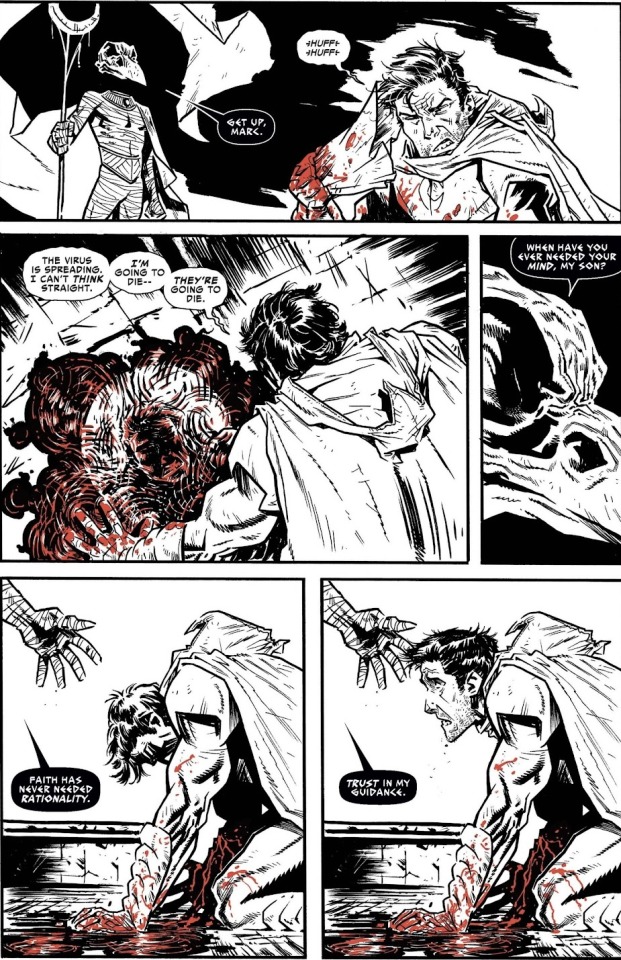
“Deliverance,” Marvel Zombies: Black, White & Blood (Vol. 1/2023), #1.
Writer: Ashley Allen; Artist: Justin Mason; Letterer: Clayton Cowles
#Marvel#Marvel comics#Marvel Zombies: Black White & Blood#Moon Knight comics#latest release#Moon Knight#Marc Spector#Khonshu#so yeah this is yet another story that ends on the incredibly bitter note of Marc fully handing the reins over to Khonshu#(with the added bonus of being zombified and eating former comrades)#but idk this page in particular got me thinking (on multiple things) so bear with me#firstly I find it increasingly interesting how in these short stories a reoccurring theme if the creators are going for the horror angle#is Khonshu taking full control and yeah that’s terrifying considering how much of modern MK comics are about restoring autonomy#both in the literal sense (shaking off Khonshu’s influence and kicking him to the curb) and in a more ephemeral sense (proving that#while categorically neurodivergent MK’s not just «some loony» but a dependable hero in his own right#so I guess it just gets me that in this case it’s a matter of sacrifice#that Marc would give up something he fought endlessly hard for to save civilian lives (although the creators succeed in making this#still feel like not a complete victory)#the other major things for me is Khonshu’s «faith has never needed rationality» which is…something I take personal umbrage with#that’s a common understanding of the term but arguably the strongest faith is born of rationality#the idea of logically coming to the conclusion that «I have combed through everything on this Earth and determined that there are something#outside the human understanding and thus I’ll hold strong to a faith in something not of this world#the fingerprints/evidences of which are still apparent even in this world too»#thus personally I see Khonshu’s statement there as another example of his oft-used manipulation: his attempts to convince Marc that#his mind and consequently Marc himself are unreliable and useless without Khonshu’s guidance#(i.e. overbearing and uncaring control) and tbh that’s pretty horrific
35 notes
·
View notes
Text
When you realize that now both Zelda and Link have functionally died, lost themselves, and remained in a magical stasis for many years for each other
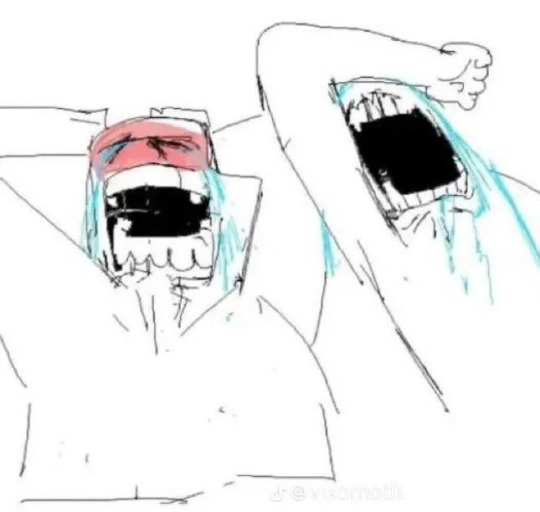
#totk spoilers#botw spoilders#ITS KILLING ME FUCK THIS GAME IS DEVESTATINNGGGGGGGG#Link dying in that feild and and spending a 100 years in the Slumber of Restoration#because he died defending Zelda#then waking up wiped totally of any memory and personality completely divorced from the person he was before#and Zelda eating the Zonai Stone the person she was dying to become lost as the Light Dragon for thousands of years#just to save Link#and give him a chance at beating ganon#zelink if you want#I’m partial to it tbh but#I personally see them as indescribablly special and deeply bonded to each other#in a best freinds but way more without being traditionally romantic way#totk#botw
92 notes
·
View notes
Text
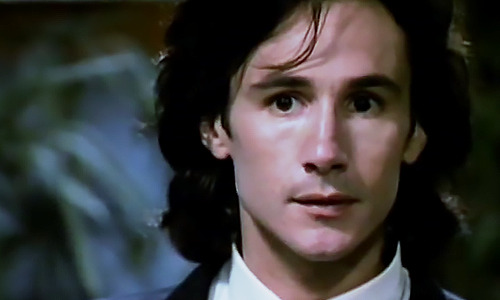
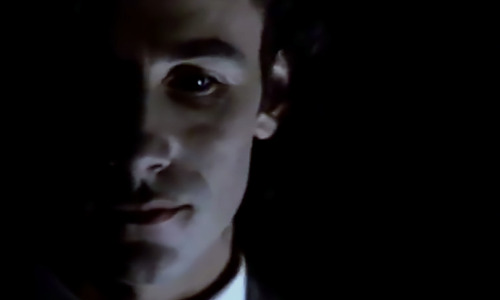

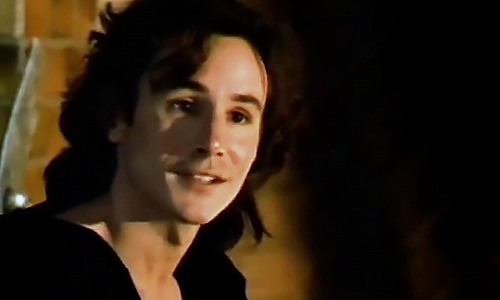
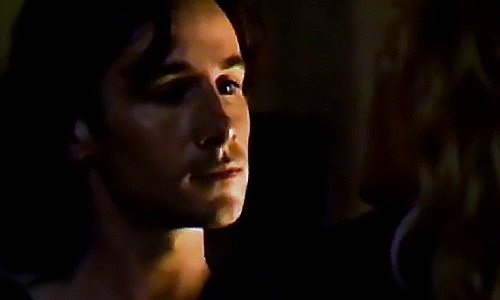
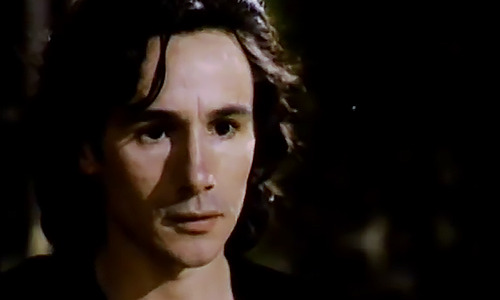
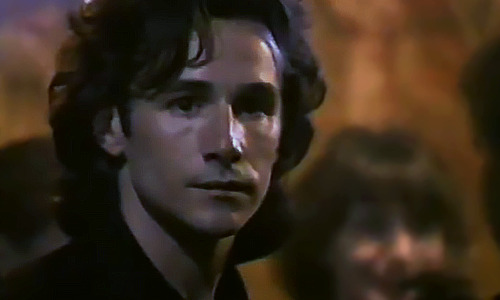
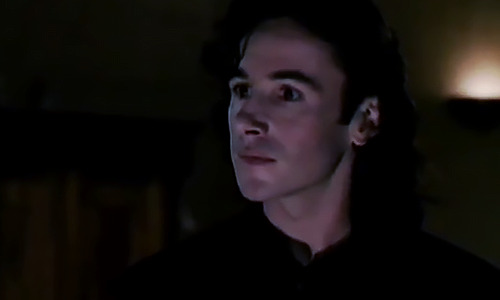
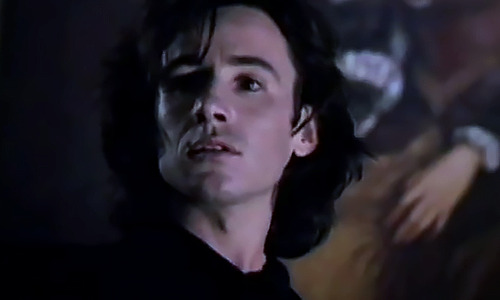
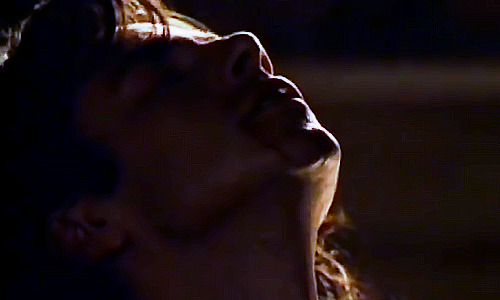
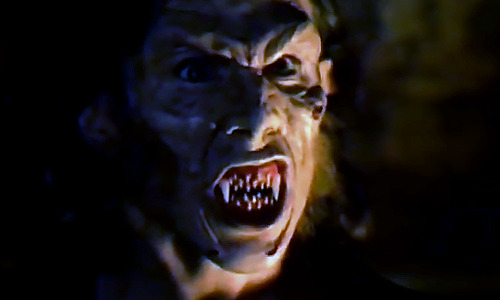
Brendan Hughes as Vlad Tepes in To Die For
#to die for#to die for 1988#to die for 1989#brendan hughes#80s horror#horroredit#I'm aware these basically suck#listen I did my best and beggars cannot be choosers in this case#let this also be my formal request for an HD restoration of this completely stupid film#being attracted to truly rare blorbos is so embarrassing#i made this
17 notes
·
View notes
Text
People should get reimbursed for commute time
If it takes someone over an hour to get tk work, that should be part of their pay.
Many people have to commute long distances/through areas of slow traffic because they cannot afford to live closer to their workplace. This is also why work from home is a big thing.
If corporations want people to return to their offices, they need to make it appealing enough. I'm not going to fight through traffic for 2 hrs in my free time just to sit at a computer all day, when I could just stay home and don't waste that time.
Corporations would be forced to invest in local affordable housing, perhaps even affording housing credits. They would need to invest in local infrastructure (which in the US is falling to pieces) and improve public transport in their area (faster commute -> less cost to the company, less cars on road -> traffic moves faster, employees without cars would still be able to get to work). Also people would be less stressed and actually take the time to drive safely because they wouldn't feel the need to rush. It would make companies actually take an interest in how their workers get to work and investing in local communities.
I live sort of near DC. We have a HUGE amount of workers commuting into the city and its surrounding cities. Retail workers also have to commute to these cities and suburbs because they cannot afford to live in those areas. My boyfriend commutes an hour to his part time job at a kennel in a rich town. A lot of people live in the more affordable, lower income, far away areas in the nearby states because housing prices in my area are fucking insane. I knew someone who commuted 2+ hours to work and 2+ hours back. There are people who drive even more than that.
And where do these employees have to live? Food deserts. Crumbling infastructure. No parks, no walkability, no public transport, bare bones everything. Only the cities which only the few can afford have basic infrastructure. And even the people living there have to commute to OTHER even richer areas. There's a ton of places where housing developments have just been shoved and are surrounded by nothing but farms. There's nothing local to do, so everyone goes to the closest town and city. It's also why you see a lot of older towns have abandoned main streets. Why have your business cater to the 100 people who live there when you can be in a city with thousands?
There has been some recent interest in paid commute times. 1 2 especially with corporations trying to get workers to go back to the office. Personally, I love working in my office because having a separate space outside my home helps me keep work and home separate and allows me to focus easier since I'm not in "home mode". I don't have room for an office in my parents house so working from home kinda sucks rn even though it would help a lot since I'm disabled. But it is nice being physically near my coworkers, even if it gets annoying sometimes. Also many jobs involve fieldwork (like mine!) which can't be done remotely anyway!
There would be incentive for corporations to keep their employees close AND provide more remote work options for those living farther away. As well as matching pay to fit rent/housing prices in the area (or vice versa).
Also there needs to be something done about corporations having their entire workforce sourced from another country entirely, working for pennies. But that's an even more complicated situation that I don't have experience in.
#long post#its 6am rant time#its so much more sustainable to have people live and work in the same communities#so many resources are spent on commute#i like my drive because it gives me time to wake up and i like just sitting n focusing for a bit#but my commute is also pretty easy since I am going away from the city towards the lower income areas#on the other direction it is backed up completely most days#we drive a lot during work to bc we visit different restoration sites and we get paid for those driving times!#it all comes down to corporations not giving a shit about their employees lives#pls dont try n dox me there are a ton of areas near DC like mine#so its harder than you'd think#but yea ive seen some crazy fucking traffic and commute times#corporations should invest in their communities instead of acting like fucking parasites#remote work#return to office#commute#labor rights#id love if sustainable city experts n economists chimed in#sustainability#sustainable cities#local economy#community
39 notes
·
View notes
Text
I’ve been reading some theories on the status of Grulovia twenty years after the deluge, and speculation seems to range from “it no longer exists” to “it got invaded again” but sometimes I think about the idea of the Grulovia that lived. The Grulovia that survived. The Grulovia that clung on by the skin of its teeth, took every bit of stolen wealth that the Maliks couldn’t take with them, and used it to rebuild. The Grulovia that beat the odds.
I can only imagine what kind of country it would be like. A country of those who stayed behind, of those who wouldn’t - or couldn’t - leave for greener pastures. A country equal parts traumatized, hopeful, and vindicitve. A country with a fear and distrust of psychics that is both deeply unfair and deeply understandable. A country trying to reinvent itself even as it’s still digging itself out of the ice, half trapped in the past and half desperately running from it.
This is all just speculation on my part, of course, but I personally think that, in a hypothetical “Return to Grulovia” storyline, a place like that makes for a much more interesting setting than an uninhabited frozen wasteland. It becomes a lot harder to confront the ghosts of your mistakes when it turns out those ghosts never actually died.
#i'll tell you one thing though- their eurovision entries probably slap#idk i was thinking about the rebuilding of hiroshima after the atomic bomb#how even amidst total devastation people find hope and come together to build anew on the ruins of the old#what better rebuttal to the maliks than for the country they had pillaged for generations to restore itself without them?#and what better testament to gristol's ignorance that he was completely unaware of it?#psychonauts#psychonauts 2#anemonator rambles
186 notes
·
View notes
Text
Not the piece I was trying to finish, but I made a very rushed art piece for seapeekarl propaganda purposes!
(Don't come after me for the inaccuracies, I was on a time crunch.... TwT)
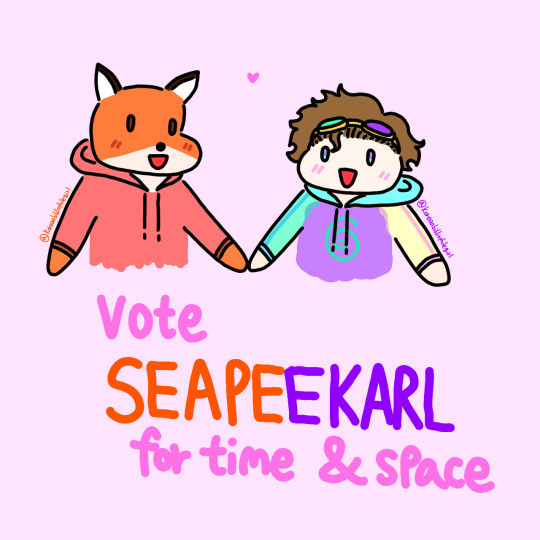
Vote seapeekarl if you want the fabric of time and space to stay intact!!!! :D (/j.... unless?)
(@the-mcyt-crackships-brackets)
#seapeekay#karl jacobs#seapeekarl#mcyt crackships bracket#I completely forgot cpk's hoodie has its sleeves rolled up OTL#Lilly draws stuff#also fun story the file got corrupted midway through#but apparently IbisPaint's progress recording function doubles as a file restoration function so I got the canvas back just fine👍
17 notes
·
View notes
Photo
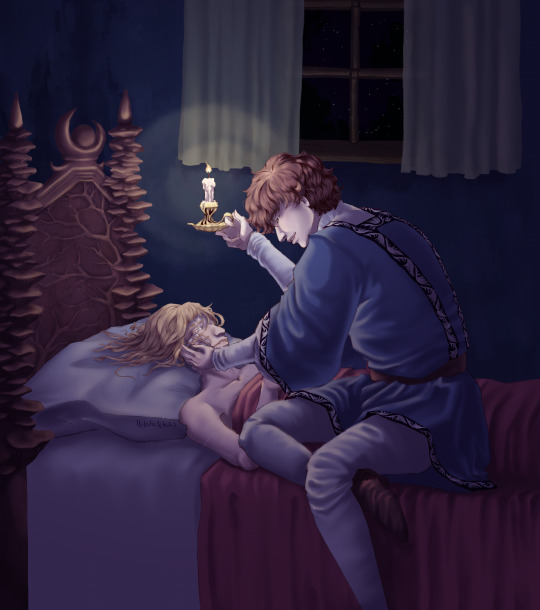
Fever ridden nights
#dnf#dreamnotfound#georgenotfound#c!george#georgenotfound fanart#dreamwastaken#dream fanart#c!dream#dsmp#dsmp fanart#monarchy restoration au#I completely forgot to hit 'post' on this one#anyways early days monarchy restoration?#dream's recovery post prison break brought on quite a few sleepless nights since his wounds got infected#but fear not! george is here to save the day
321 notes
·
View notes
Text
I can’t believe the collective, analysing minds of got/asoiaf fans came up with and believed …. boat baby. Not only is it an absolute crack plot, it actively goes against the themes and foreshadowing of the show and the book. Also, what made them think that jon snow of all people will like to have a bastard baby?
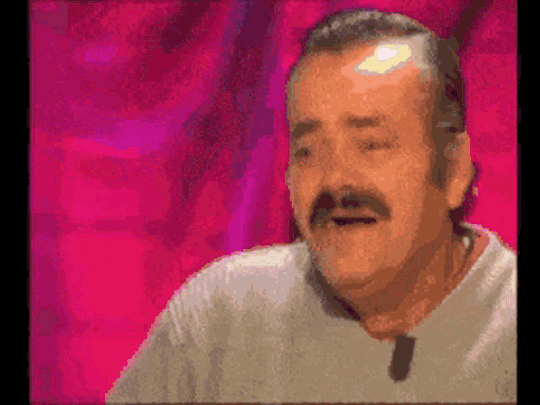
#I was laughing at it then I’m laughing at it now#fucking boat baby 😂😂#sure let’s completely throw out jon snow’s motivations and leitmotif because d&d were only 75% there#anti targ restoration#asoiaf#game of thrones#no amount of crack I think of will ever compare to whatever this is 😂#anti jonerys#anti boat baby#gots7#gots8
17 notes
·
View notes